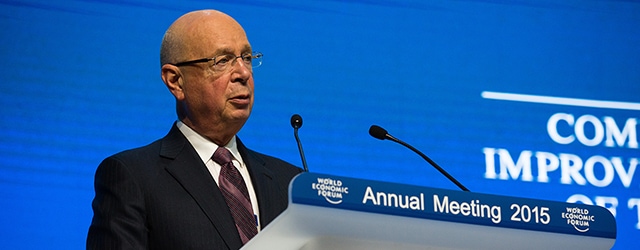This year's World Economic Forum in Davos is happening in an era of rising protectionism and de-globalization.

For decades, the World Economic Forum’s annual conferencein the Swiss ski resort of Davos has been the summit meetingof global change makers and a platform for promoting asteadily more interconnected global economy. The conference themethis year is much the same, as the elites will gather on January 22-25under the headline, “Globalization 4.0: Shaping a Global Architecturein the Age of the Fourth Industrial Revolution.”
Yet, the world has rarely appeared so unwelcoming to the messageof Davos.
Expected Davos attendees include more than 250 politicians andnearly 1,000 CEOs and corporate chairs, along with personalities fromthe sciences, cultural figures and heads of media outlets. In contrast tothe WEF’s determinedly forward-looking focus, many of the attendeesfind themselves preoccupied with pressing tensions including tradefights, a populist surge and the longer-term ills of economic inequalityand climate change.
Disputes over world trade and its structure are threatening globalizationas Davos has long defined it. Waves of migrants are puttingstrains on nations, arousing economic and racial fears. Growinginequality is a slow-burning ill that puts in doubt how long economicgrowth can last if it is not shared. Climate change calls into questionthe sustainability of the development the world has already achieved.
As always, however, the WEF emphasizes the positive if not thevisionary. “We are entering into a Fourth Industrial Revolution,” itsconference announcement says, “shaped by advanced technologiesfrom the physical, digital and biological World’s that combineto create innovations at a speed and scale unparalleled in humanhistory.”
The first industrial revolution harnessed water and steam to mechanizeproduction, the WEF explains; the second used electric powerto generate mass production; and the third automated productionusing electronics and information technology. The fourth is “a fusionof technologies that is blurring the lines between the physical, digitaland biological spheres,” writes Klaus Schwab, the WEF’s founder andexecutive chairman. “The possibilities of billions of people connectedby mobile devices, with unprecedented processing power, storagecapacity and access to knowledge, are unlimited.”
That potential is threatened by growing inequality: “the greatestsocietal concern associated with the Fourth Industrial Revolution,”Schwab allows. “The largest beneficiaries of innovation tend to bethe providers of intellectual and physical capital—the innovators,shareholders and investors—which explains the rising gap in wealthbetween those dependent on capital versus labor.”
Davos this year will focus on six main issues:
•“Ongoing changes in international relations” and “how todrive future cooperation”
•The future of economics, productivity and the financial system,and how they support “growth and long-term societalwell-being”
•The industrial system that will produce services in “health,energy, communication and transport,” including the “principles”needed to guide “new and emerging technologies such as artificialintelligence and gene editing”
•Cybersecurity, and how to make sure that “digital innovationand the technological backbone of the Fourth IndustrialRevolution are both secure and trusted”
•Human capital, and how work is “moving from a consumptionand materialistic fixation to a more idealistic, humanistic focus”
•Institutional reforms, and how to update them for the remainderof the 21st century, including a “global dialogue on economiccooperation to create a new framework of rules and institutionsintegrating all aspects of global economic cooperation.” Thesewould include “intellectual property, movement of people, competitionpolicies, data protection, exchange rates, fiscal policies,state-owned enterprises and national security”
Davos is both formal and informal: Much of the action typicallbtakes place outside the assembly rooms where issues such as theseare discussed, in the hallways and corridors where attendees canmeet, schmooze and sometimes hatch plans. This year in Davosthere will be much to debate; and participation, as usual, will bemassive. How many of the WEF’s six big issues will be discussedoutside the assembly rooms, and how many will be acted upon afterthe three-day affair ends, remains uncertain.



